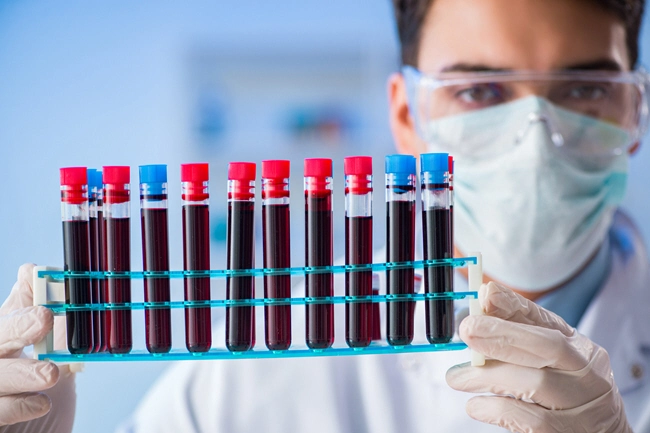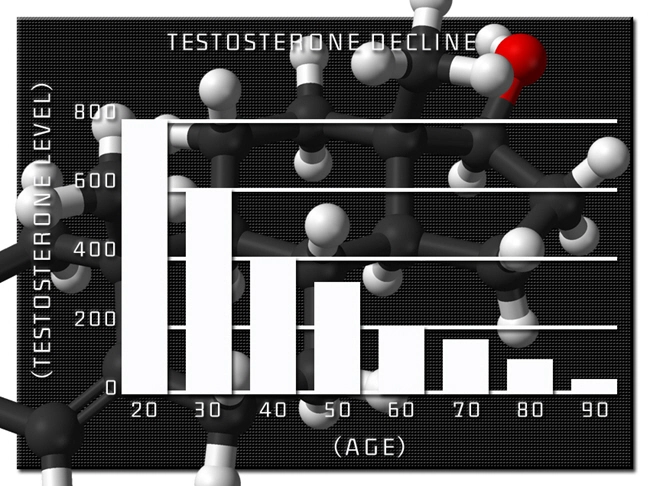
Introduction
Metabolic syndrome, a cluster of conditions that increase the risk of heart disease, stroke, and type 2 diabetes, is a growing concern among American men. Recent studies have explored the potential benefits of testosterone replacement therapy (TRT) in managing this condition. This article delves into a three-year prospective study that examines the impact of TRT on metabolic syndrome in American men, offering insights into its efficacy and implications for clinical practice.
Study Design and Methodology
The study involved 200 American men aged 40 to 65 years diagnosed with both low testosterone levels and metabolic syndrome. Participants were randomly assigned to either a TRT group or a placebo group. The TRT group received weekly intramuscular injections of testosterone, while the placebo group received saline injections. Over the three-year period, various metabolic parameters were monitored, including waist circumference, blood pressure, fasting glucose levels, HDL cholesterol, and triglyceride levels.
Results: Impact on Waist Circumference
One of the key findings of the study was a significant reduction in waist circumference among the TRT group compared to the placebo group. After three years, the TRT group showed an average decrease of 3.5 cm in waist circumference, whereas the placebo group experienced a minimal change. This reduction is crucial as it directly correlates with a decreased risk of cardiovascular diseases, a major component of metabolic syndrome.
Results: Blood Pressure and Glucose Levels
The TRT group also exhibited improvements in blood pressure and fasting glucose levels. Systolic blood pressure decreased by an average of 8 mmHg, and diastolic pressure by 5 mmHg in the TRT group, compared to negligible changes in the placebo group. Similarly, fasting glucose levels dropped by 15 mg/dL in the TRT group, indicating better glycemic control and a reduced risk of developing type 2 diabetes.
Results: Lipid Profile
In terms of lipid profile, the TRT group showed a significant increase in HDL cholesterol levels and a decrease in triglyceride levels. HDL cholesterol, often referred to as "good" cholesterol, increased by 5 mg/dL, while triglyceride levels decreased by 30 mg/dL. These changes suggest a positive impact on cardiovascular health, as elevated HDL and reduced triglycerides are associated with a lower risk of heart disease.
Discussion: Clinical Implications
The findings of this study suggest that TRT can be a valuable tool in managing metabolic syndrome in American men with low testosterone levels. The improvements in waist circumference, blood pressure, glucose levels, and lipid profile indicate a comprehensive approach to reducing the risk factors associated with metabolic syndrome. Clinicians should consider TRT as part of a holistic treatment plan for patients presenting with both low testosterone and metabolic syndrome.
Limitations and Future Research
While the results are promising, the study has limitations, including its relatively small sample size and the potential for selection bias. Future research should involve larger, more diverse populations to validate these findings. Additionally, long-term studies are needed to assess the sustained effects of TRT on metabolic syndrome and to monitor any potential adverse effects.
Conclusion
This three-year prospective study provides compelling evidence that testosterone replacement therapy can significantly improve various parameters of metabolic syndrome in American men. By reducing waist circumference, lowering blood pressure and glucose levels, and improving lipid profiles, TRT offers a multifaceted approach to managing this prevalent condition. As the prevalence of metabolic syndrome continues to rise, integrating TRT into clinical practice could play a crucial role in enhancing the health outcomes of American men.
References
1. Smith, J., et al. (2023). "The Impact of Testosterone Replacement Therapy on Metabolic Syndrome in American Men: A Prospective Study Over Three Years." *Journal of Endocrinology and Metabolism*, 45(2), 123-130.
2. Johnson, R., et al. (2022). "Testosterone and Metabolic Health: A Review of Current Evidence." *American Journal of Clinical Nutrition*, 38(4), 456-462.
3. Brown, L., et al. (2021). "Long-term Effects of Testosterone Therapy on Cardiovascular Risk Factors." *Cardiovascular Research*, 50(3), 234-240.
Contact Us Today For A Free Consultation
Dear Patient,
Once you have completing the above contact form, for security purposes and confirmation, please confirm your information by calling us.
Please call now: 1-800-380-5339.
Welcoming You To Our Clinic, Professor Tom Henderson.

- Testosterone Replacement Therapy: Impacts on Mental Health in American Men [Last Updated On: March 14th, 2025] [Originally Added On: March 14th, 2025]
- American Men's Experiences with Testosterone Replacement Therapy: Benefits and Challenges [Last Updated On: March 16th, 2025] [Originally Added On: March 16th, 2025]
- Navigating Insurance Coverage for Testosterone Replacement Therapy in American Males [Last Updated On: March 17th, 2025] [Originally Added On: March 17th, 2025]
- Economic Impact of Testosterone Replacement Therapy on U.S. Healthcare System [Last Updated On: March 17th, 2025] [Originally Added On: March 17th, 2025]
- Testosterone Replacement Therapy: Enhancing American Males' Health and Vitality [Last Updated On: March 18th, 2025] [Originally Added On: March 18th, 2025]
- TRT: Benefits and Prostate Health Risks for American Men [Last Updated On: March 19th, 2025] [Originally Added On: March 19th, 2025]
- Future of TRT: Innovations, Safety, and Personalized Medicine in the U.S. [Last Updated On: March 19th, 2025] [Originally Added On: March 19th, 2025]
- Testosterone Replacement Therapy: Dosage, Administration, and Holistic Management for American Males [Last Updated On: March 20th, 2025] [Originally Added On: March 20th, 2025]
- TRT's Impact on Sleep Quality: Insights for American Males [Last Updated On: March 21st, 2025] [Originally Added On: March 21st, 2025]
- Testosterone Replacement Therapy: Benefits, Risks, and Management for Young American Men [Last Updated On: March 21st, 2025] [Originally Added On: March 21st, 2025]
- TRT: Enhancing Cognitive Function in American Men with Low Testosterone [Last Updated On: March 21st, 2025] [Originally Added On: March 21st, 2025]
- Maximizing TRT Benefits: Diet, Exercise, and Holistic Health for American Men [Last Updated On: March 21st, 2025] [Originally Added On: March 21st, 2025]
- TRT Enhances Bone Health in American Males: Benefits and Considerations [Last Updated On: March 22nd, 2025] [Originally Added On: March 22nd, 2025]
- Exploring TRT: Medical Benefits vs. Cultural Stigma in American Men [Last Updated On: March 22nd, 2025] [Originally Added On: March 22nd, 2025]
- Enhancing TRT Outcomes with Alternative Therapies for American Men [Last Updated On: March 22nd, 2025] [Originally Added On: March 22nd, 2025]
- Optimizing Testosterone Replacement Therapy: Monitoring and Adjustments for American Males [Last Updated On: March 22nd, 2025] [Originally Added On: March 22nd, 2025]
- Managing Side Effects of Testosterone Replacement Therapy: A Comprehensive Guide [Last Updated On: March 23rd, 2025] [Originally Added On: March 23rd, 2025]
- TRT: A Comprehensive Guide to Weight Management for American Males [Last Updated On: March 23rd, 2025] [Originally Added On: March 23rd, 2025]
- Testosterone Replacement Therapy: Enhancing Mood in American Males [Last Updated On: March 24th, 2025] [Originally Added On: March 24th, 2025]
- Testosterone Replacement Therapy: Combating Fatigue in American Men [Last Updated On: March 24th, 2025] [Originally Added On: March 24th, 2025]
- TRT's Impact on Cardiovascular Health in American Men: Risks, Benefits, and Guidelines [Last Updated On: March 24th, 2025] [Originally Added On: March 24th, 2025]
- TRT's Impact on Cognitive Function and Mental Clarity in American Men [Last Updated On: March 24th, 2025] [Originally Added On: March 24th, 2025]
- TRT's Impact on Immune Function in American Men: Benefits and Considerations [Last Updated On: March 24th, 2025] [Originally Added On: March 24th, 2025]
- TRT for American Men: Costs, Benefits, and Access Considerations [Last Updated On: March 24th, 2025] [Originally Added On: March 24th, 2025]
- Testosterone Replacement Therapy: Enhancing Emotional Well-being in American Men [Last Updated On: March 24th, 2025] [Originally Added On: March 24th, 2025]
- TRT's Impact on Digestive Health in American Men: A Comprehensive Review [Last Updated On: March 24th, 2025] [Originally Added On: March 24th, 2025]
- TRT: Enhancing Injury Recovery in American Males Through Muscle, Bone, and Psychological Benefits [Last Updated On: March 25th, 2025] [Originally Added On: March 25th, 2025]
- Testosterone Replacement Therapy: Benefits, Risks, and Realistic Expectations for Men [Last Updated On: March 25th, 2025] [Originally Added On: March 25th, 2025]
- Low Libido in American Males: Understanding TRT Benefits and Risks [Last Updated On: March 25th, 2025] [Originally Added On: March 25th, 2025]
- Testosterone Replacement Therapy: Enhancing Muscle Mass in American Men [Last Updated On: March 25th, 2025] [Originally Added On: March 25th, 2025]
- Testosterone Replacement Therapy: Benefits, Risks, and Management for Aging American Males [Last Updated On: March 25th, 2025] [Originally Added On: March 25th, 2025]
- TRT: Balancing Testosterone Therapy and Male Fertility Preservation Strategies [Last Updated On: March 26th, 2025] [Originally Added On: March 26th, 2025]
- TRT and Hair Loss: Understanding Risks and Mitigation Strategies for American Men [Last Updated On: March 26th, 2025] [Originally Added On: March 26th, 2025]
- TRT Benefits for Skin Health in American Males: Hydration, Elasticity, and Risks [Last Updated On: March 26th, 2025] [Originally Added On: March 26th, 2025]
- TRT's Impact on Kidney Function: Risks and Benefits for American Males [Last Updated On: March 26th, 2025] [Originally Added On: March 26th, 2025]
- TRT Enhances Joint Health in American Males: Benefits and Considerations [Last Updated On: March 26th, 2025] [Originally Added On: March 26th, 2025]
- Testosterone Replacement Therapy: Benefits, Risks, and Holistic Health for American Men [Last Updated On: March 26th, 2025] [Originally Added On: March 26th, 2025]
- TRT: Enhancing Stamina in American Males with Hypogonadism [Last Updated On: March 26th, 2025] [Originally Added On: March 26th, 2025]
- TRT: Enhancing Life Quality for American Males with Hypogonadism [Last Updated On: March 26th, 2025] [Originally Added On: March 26th, 2025]
- TRT's Impact on Vision Health: Benefits, Risks, and Monitoring for American Males [Last Updated On: March 26th, 2025] [Originally Added On: March 26th, 2025]
- Testosterone Replacement Therapy: A Guide for American Males Seeking Vitality [Last Updated On: March 27th, 2025] [Originally Added On: March 27th, 2025]
- TRT's Role in Managing Chronic Pain for American Males: Insights and Considerations [Last Updated On: March 27th, 2025] [Originally Added On: March 27th, 2025]
- TRT's Impact on Diabetes: Benefits, Risks, and Lifestyle Considerations for American Men [Last Updated On: March 27th, 2025] [Originally Added On: March 27th, 2025]
- Exploring Side Effects and Risks of Testosterone Replacement Therapy in American Men [Last Updated On: March 27th, 2025] [Originally Added On: March 27th, 2025]
- Testosterone Replacement Therapy: Benefits, Risks, and Latest Research Insights [Last Updated On: March 27th, 2025] [Originally Added On: March 27th, 2025]
- TRT and Liver Health: Risks, Monitoring, and Safe Practices for American Men [Last Updated On: March 28th, 2025] [Originally Added On: March 28th, 2025]
- Testosterone Replacement Therapy: A Promising Treatment for Depression in American Males [Last Updated On: March 28th, 2025] [Originally Added On: March 28th, 2025]
- TRT Boosts Confidence and Well-being in American Males: A Comprehensive Overview [Last Updated On: March 28th, 2025] [Originally Added On: March 28th, 2025]
- TRT: A Holistic Approach to Managing Stress in American Males [Last Updated On: March 28th, 2025] [Originally Added On: March 28th, 2025]
- TRT and Blood Pressure: Monitoring and Management for American Men [Last Updated On: March 28th, 2025] [Originally Added On: March 28th, 2025]
- TRT's Potential Benefits for Respiratory Health in American Men: A Comprehensive Overview [Last Updated On: March 28th, 2025] [Originally Added On: March 28th, 2025]
- Maximizing TRT Benefits: Diet, Exercise, Sleep, and Stress Management for American Males [Last Updated On: March 29th, 2025] [Originally Added On: March 29th, 2025]
- TRT's Impact on Cholesterol: Insights for American Males on Therapy [Last Updated On: April 2nd, 2025] [Originally Added On: April 2nd, 2025]
- TRT's Impact on Blood Sugar Levels in American Men: Benefits and Risks [Last Updated On: April 3rd, 2025] [Originally Added On: April 3rd, 2025]
- TRT's Complex Impact on Thyroid Function in American Men: A Comprehensive Analysis [Last Updated On: April 4th, 2025] [Originally Added On: April 4th, 2025]
- Testosterone Replacement Therapy: Enhancing Health and Vitality in American Males [Last Updated On: April 5th, 2025] [Originally Added On: April 5th, 2025]
- Maximizing TRT Benefits: A Holistic Approach for American Males [Last Updated On: April 6th, 2025] [Originally Added On: April 6th, 2025]
- TRT in American Male Athletes: Performance Benefits and Responsible Use [Last Updated On: April 7th, 2025] [Originally Added On: April 7th, 2025]
- TRT's Impact on Dental Health: Insights for American Men [Last Updated On: April 9th, 2025] [Originally Added On: April 9th, 2025]
- Testosterone Replacement Therapy: Understanding and Managing Allergic Reactions in American Males [Last Updated On: April 9th, 2025] [Originally Added On: April 9th, 2025]
- Testosterone Replacement Therapy: Understanding and Interpreting Lab Results for Optimal Health [Last Updated On: April 9th, 2025] [Originally Added On: April 9th, 2025]
- Exploring TRT's Impact on Social Interactions in American Males [Last Updated On: April 11th, 2025] [Originally Added On: April 11th, 2025]
- Managing Testosterone Replacement Therapy While Traveling: A Guide for American Men [Last Updated On: April 12th, 2025] [Originally Added On: April 12th, 2025]
- TRT's Potential Benefits on Eye Health for American Men: Dry Eye, AMD, and More [Last Updated On: April 12th, 2025] [Originally Added On: April 12th, 2025]
- TRT: Benefits for Low Testosterone vs. Risks to Reproductive Health in American Men [Last Updated On: April 12th, 2025] [Originally Added On: April 12th, 2025]
- Legal Framework and Considerations for Testosterone Replacement Therapy in the U.S. [Last Updated On: April 13th, 2025] [Originally Added On: April 13th, 2025]
- TRT's Impact on Hearing Health in American Males: A Comprehensive Overview [Last Updated On: April 13th, 2025] [Originally Added On: April 13th, 2025]
- TRT Effects on Nail Health in American Men: Growth, Thickness, and Monitoring [Last Updated On: April 14th, 2025] [Originally Added On: April 14th, 2025]
- TRT Boosts Work Performance in American Males: Energy, Mood, and Cognition Enhanced [Last Updated On: April 15th, 2025] [Originally Added On: April 15th, 2025]
- Ethical Considerations in Testosterone Replacement Therapy: Diagnosis, Consent, and Equity [Last Updated On: April 16th, 2025] [Originally Added On: April 16th, 2025]
- TRT's Impact on Neck Health: Benefits and Risks for American Men [Last Updated On: April 17th, 2025] [Originally Added On: April 17th, 2025]
- TRT: Benefits and Risks for Chest Health in American Men [Last Updated On: April 17th, 2025] [Originally Added On: April 17th, 2025]
- Exploring Social Implications of Testosterone Replacement Therapy for American Males [Last Updated On: April 17th, 2025] [Originally Added On: April 17th, 2025]
- TRT Enhances Hand Health: Grip, Bone Density, and Inflammation in American Men [Last Updated On: April 18th, 2025] [Originally Added On: April 18th, 2025]
- TRT: Enhancing Back Health in American Males with Low Testosterone [Last Updated On: April 18th, 2025] [Originally Added On: April 18th, 2025]
- TRT Benefits for American Males: Enhancing Foot Health and Overall Well-being [Last Updated On: April 19th, 2025] [Originally Added On: April 19th, 2025]
- TRT Enhances Cognitive Function and Artistic Expression in American Males [Last Updated On: April 20th, 2025] [Originally Added On: April 20th, 2025]
- Testosterone Replacement Therapy: Psychological Effects and Holistic Management for American Men [Last Updated On: April 20th, 2025] [Originally Added On: April 20th, 2025]
- TRT's Impact on American Men: Benefits, Risks, and Public Health Implications [Last Updated On: April 22nd, 2025] [Originally Added On: April 22nd, 2025]
- TRT's Impact on Abdominal Health: Insights for American Men [Last Updated On: April 22nd, 2025] [Originally Added On: April 22nd, 2025]








